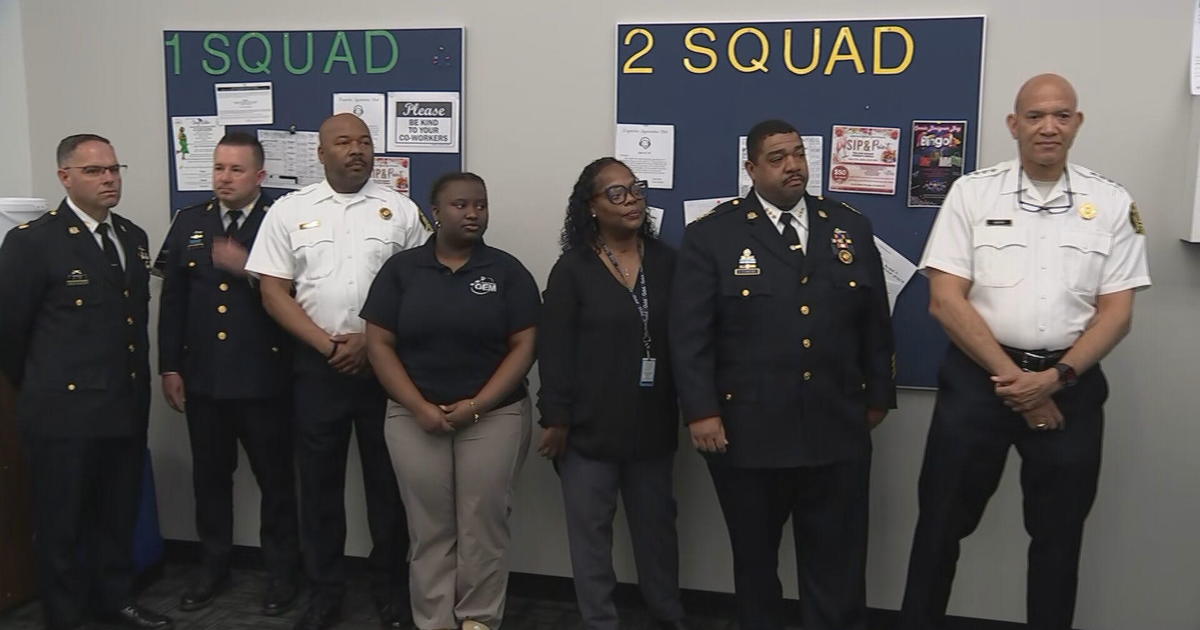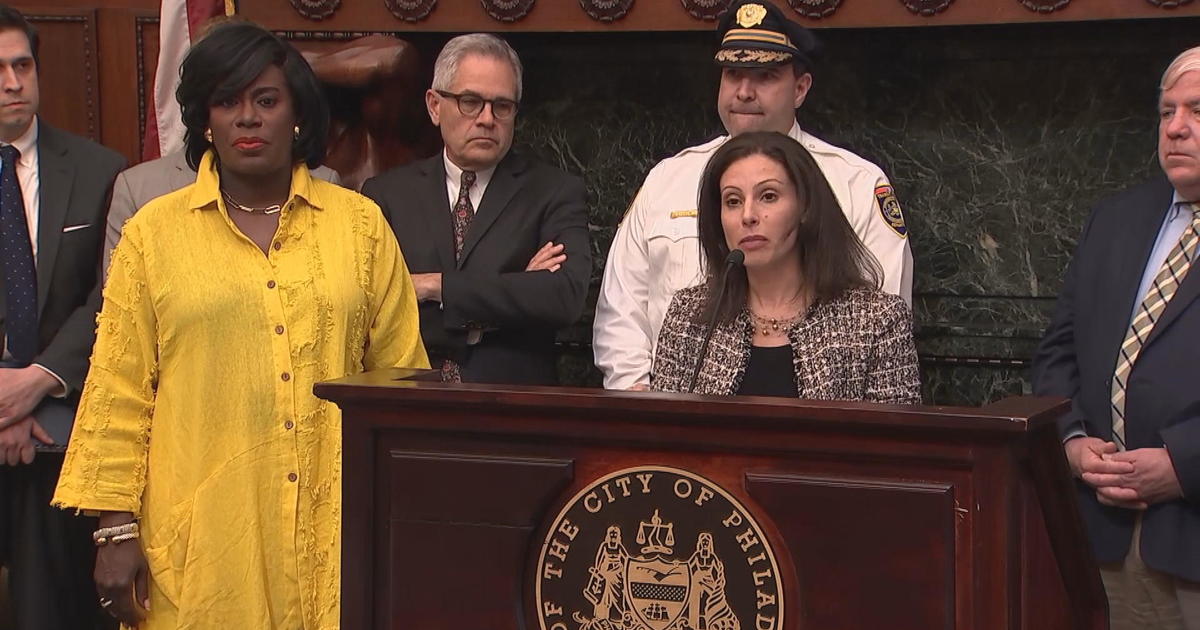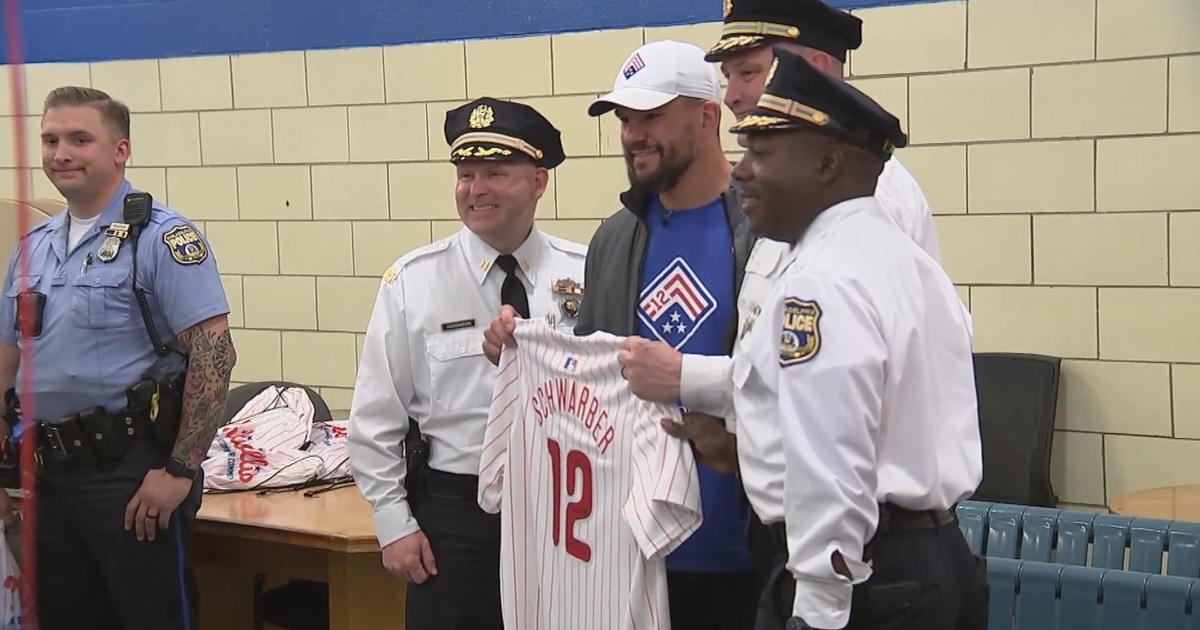Officials: Overwhelmed Child Welfare Case Managers In Phila. Resort To Falsifying Documents
By Pat Loeb
PHILADELPHIA (CBS) -- State officials say overworked child welfare case managers in Philadelphia have resorted to falsifying documents, because they cannot keep up with the case loads they've been assigned. Case loads have grown as a result of a huge change in the way the city handles child welfare cases, in response to the 2006 starvation death of Danieal Kelly while under city protection.
Though child welfare officials say they think the new system can work, it is currently stretched too thin, with case managers responsible for 13 families at a time, leading to high turnover among workers and, it was disclosed during a public meeting today, occasional falsifying of documents vouching that case workers had made required family visits.
"That's a risk," said David Sanders, chair of the Community Oversight Board (COB), established in the aftermath of Kelly's death to make sure the Department of Human Services is keeping children in its care safe.
"If kids are not being seen, or being seen by staff who are tired and overwhelmed, they're safety is being compromised. We wouldn't let airline pilots fly that way. I don't see how things can continue like this without something harmful happening."
It was during today's COB meeting that the falsified documents issue came up, just part of an array of problems in the new child welfare system detailed for Board members.
The new system transferred responsibility for children under the city's care from centralized DHS staff to Community Umbrella Agencies (CUAs). In a report to the board, CUA officials painted a stark portrait of the burden on their case workers, whom they described as sometimes crying at their desks because they are so overwhelmed, and the resulting high turnover which makes the situation worse for those who stay.
Their report prompted a state official at the meeting to say the workers could not possibly be making all the visits they're required to make.
"We know they're falsifying documents," said Raheemah Shamsid-Deen Hampton, regional director for the PA DHS. "We know it's happening. Kids are not being seen and I'm worried."
One CUA official acknowledged he had fired a worker for falsely claiming to have made visits she did not make. Acting DHS Commissioner Jessica Shapiro said she had been made aware of such instances.
"Staff have falsified visits and we make sure that children are assessed appropriately and that we follow up appropriately," Shapiro said.
A spokeswoman for the state DHS later confirmed that the state knows of two instances in which case managers falsified reports and that they were fired.
"We take this very seriously," said Kait Gillis.
But CUA officials and child advocates attending the meeting said falsifying documents was just a symptom of a larger issue-- insufficient resources to safely manage the 6,200 children in care under city auspices.
"We were never able to deliver because of fiscal constraints," said one CUA manager to the board. "It's not a whole lot better than the old system; we're just desperately trying to deliver what we can."
Regan Kelly, president and CEO of NET, another CUA, compared trying to address all the problems in the new system as "like playing a game of Whack-a-Mole."
Kelly and other advocates also warned that the thin resources are discouraging foster families from taking in children who need homes.
"They are struggling," said one advocate. "They feel alone and unsupported. You're losing quality foster parents."
CUA officials told Shapiro and the COB that a short-term investment would allow the CUAs to stabilize their staffs, right-size caseloads and move children to permanent homes faster, thus reducing the number of children in care. They suggested that could be achieved in a two- to three-year time frame.
But Shapiro was not encouraging. "We don't have any more money right now," she said.
DHS funding is a complex matter but child advocates have noted that the Department continues to employ a full staff of case managers, even though case management has been shifted to the CUAs.
Shapiro insisted they are all very busy with new responsibilities, including investigating more reports of child abuse. Reports have increased since new state laws passed in response to the Jerry Sandusky child molestation case.
DHS goes before city council for budget hearings next week. It is asking for an increase in funding to support the case managers who remain but not for payments to CUAs.
Shamsid-Deen Hampton seemed to be skeptical about DHS's budget priorities.
"We believe the money should be with the staff that's doing the work," she said.



